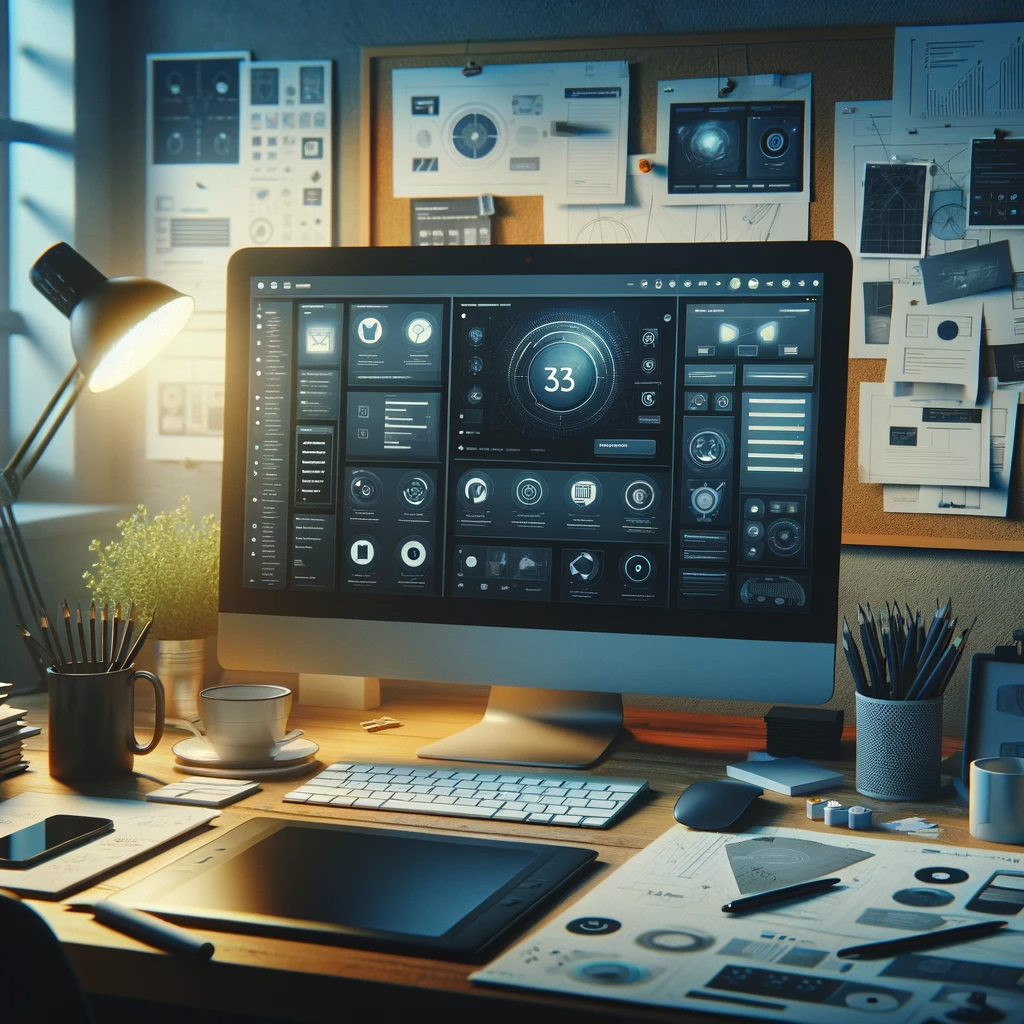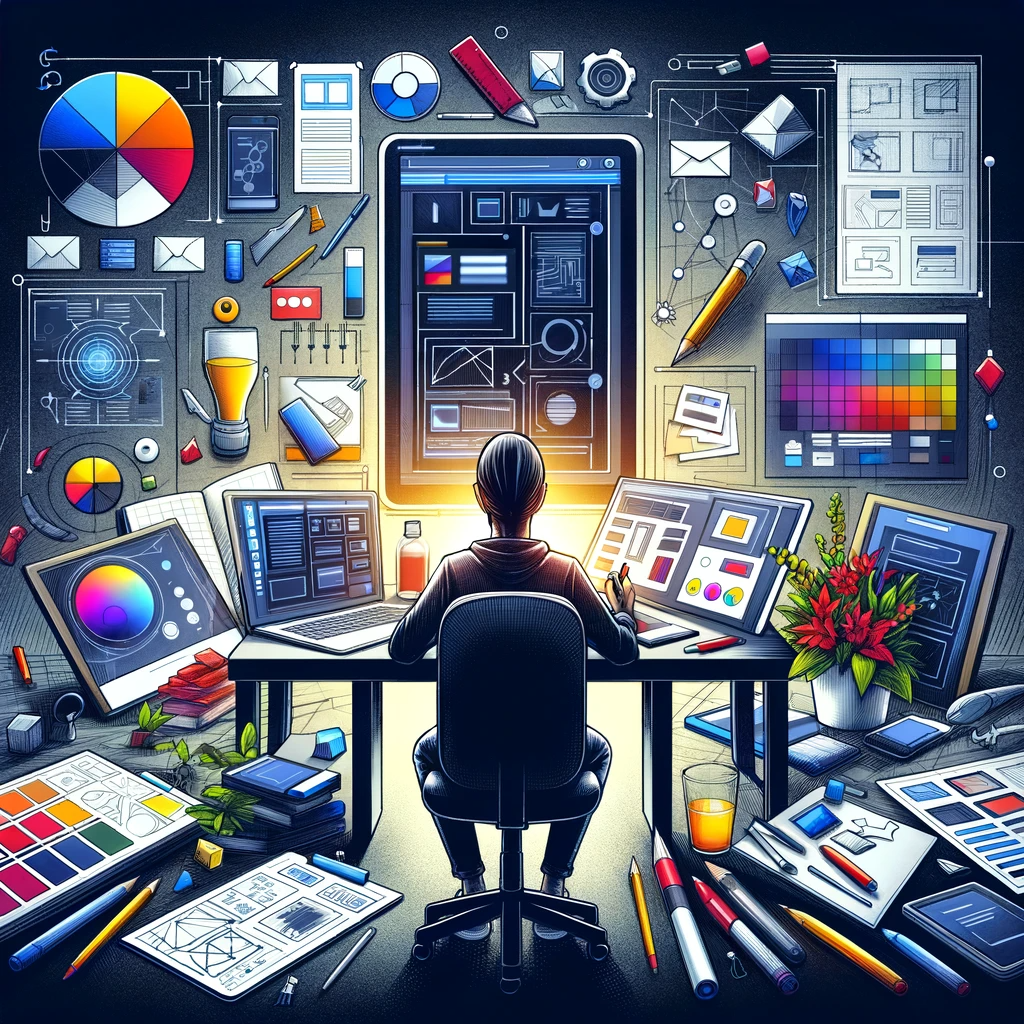Navigating the Creative Pathway of UI/UX Design
In the digital age, the interface is the first handshake between technology and the user. UI/UX designers are the architects of this crucial interaction, crafting experiences that are not only visually appealing but also intuitive and user-friendly. If you’re considering a career that combines creativity, psychology, and technology, UI/UX design could be your canvas. The series of Figure 1, 2, & 3 vividly portrays a Full Stack Mobile App Developer’s journey from coding to completion, the intricate fusion of front-end and back-end development symbolized by a code-entwined mobile phone, and the diverse array of apps, from social media to productivity tools, crafted by these skilled developers.



The Art and Science of UI/UX Design
Understanding UI and UX:
- User Interface (UI) Design: Focuses on the visual elements of a product, like layout, color schemes, and typography.
- User Experience (UX) Design: Involves researching and developing the overall feel of the product, ensuring it’s aligned with user needs.
A Rewarding Career: UI/UX designers play a vital role in product development. Their work directly impacts customer satisfaction and engagement, making them integral to a business’s success.
Skills That Make a Great UI/UX Designer
Empathy and Understanding: A deep understanding of user needs and behaviors is crucial.
Creativity and Innovation: An eye for design and a knack for thinking outside the box.
Technical Proficiency: Familiarity with design tools like Sketch, Adobe XD, and Figma.
Communication and Collaboration: Working effectively with development teams and stakeholders to bring designs to life.
Stepping Stones in UI/UX Design
Educational Background: Degrees in graphic design, human-computer interaction, or even psychology can be beneficial.
Portfolio Development: Showcase your design projects, including your process from research to final design.
Continuous Learning: The digital landscape is always evolving. Staying updated with the latest design trends and tools is vital.
Networking: Joining design communities and attending workshops or conferences can lead to valuable connections.
The Future of UI/UX Design
As technology continues to advance, the demand for skilled UI/UX designers is expected to rise. The future promises more opportunities for those who can blend artistic design with user-centric functionality.